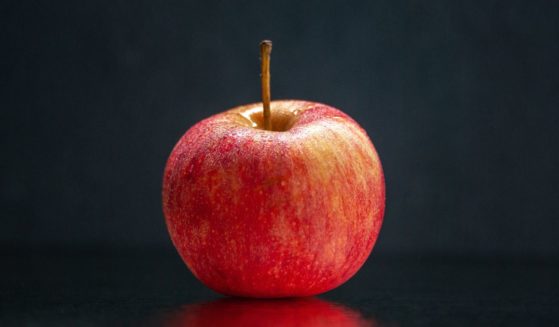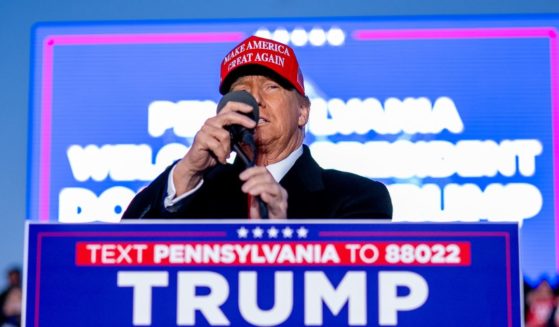American-Born Olympic Athlete Competing for China Sparks Outrage After Tone-Deaf Advice for Chinese
American-born skier Eileen Gu, who is competing for the China at the 2022 Beijing Winter Olympics, has some advice for Chinese people who can’t access sites like Instagram due to iron-clad state censorship of the internet: Use a VPN.
An excellent idea. Why didn’t the Chinese communists think of making them difficult to access? Oh, wait — they did, and authorities have punished people who’ve used them.
Now, Gu is facing increased scrutiny — both in China and the United States — over her lack of awareness of China’s online censorship policies and human rights violations.
Gu’s faux pas is the latest controversy to beset the Beijing Winter Games, particularly regarding China’s record of violent oppression and genocide. The Western Journal has covered the seamy, political side of the Games — and we’ll continue to bring readers the truth about this poxed Olympiad. You can help us in our fight by subscribing.
According to The New York Times, Gu, 18, has become a superstar in China after winning a gold medal in the freeski big air competition. The Times’ Amy Qin wrote in a piece published Monday that Gu has been “charming the country with her superior athletic skills, model looks and standout intellect.”
That standout intellect apparently didn’t include a thorough knowledge of how China’s internet works. Because of what’s known as the “Great Firewall” — an all-pervasive system of internet filters run by the state — most Western news sites and social media networks remain off-limits for residents of mainland China.
Yet, Gu is a user of Instagram, a network blocked by the country. In one of her posts, one user asked why she could “Instagram and millions of Chinese people from mainland China cannot, why you got such special treatment as a Chinese citizen.”
The user also asked her to “speak up for those millions of Chinese who don’t have internet freedom.”
Gu responded that “anyone can download a vpn its [sic] literally free on the App Store,” along with a thumbs up.
Marie,Queen of France:If they dont have bread,let them eat cake. ?
Eileen Gu,Princess of China:if GFW blocks the internet,let them use VPN.? pic.twitter.com/1h6qA3w5LS
— 巴丢草 Badiucao?? (@badiucao) February 10, 2022
Well, that is Marie Antoinette-level tone deaf, yes.
Gu has already faced questions about her citizenship. She was born in California; her Chinese citizenship comes through her mother, an investment banker and venture capitalist who is the daughter of a former Chinese Communist Party official.
“I grew up spending 25 percent of my time in China, I’m fluent in Mandarin and English and fluent culturally in both countries. My mum grew up in Beijing and there is a real sense of coming home,” Gu said, according to the U.K. Independent.
Dual citizenship isn’t allowed by China, but it’s unclear whether Beijing let Gu keep her U.S. passport. Several articles suggested the government made an exception for her — articles that have been blocked by the Chinese government from its own citizens.
That had already caused a stir before her remarks about downloading a VPN, or virtual private network, which allows users to access content not available in their country. VPNs are hard to come by for those in the Chinese mainland, if they can be found at all, according to the Times — and definitely not accessible via the app store.
What’s more, Hong Kong’s South China Morning Post reported in November that China’s internet authority had drafted a rule that “stipulates that no individual or organization shall provide ‘programs, tools, routes’ or services, including internet access, server hosting, technical support, promotion, app downloads, payment and settlement for ‘penetrating and bypassing the cross-border data security gateway,'” which would represent a further crackdown on VPNs.
In short, the technology that Gu so breezily recommended is not as easy to get to in the Middle Kingdom as it is in the West, and its use definitely carries risks she appears to be completely unaware of.
Screenshots of Gu’s Instagram comment found their way onto Chinese social media network Weibo, where they caused outrage.
“Literally, I’m not ‘anyone,’” one Weibo user wrote, according to the Times. “Literally, it is illegal for me to use a VPN.”
Gu is only 18, granted. That said, she’s stepped into a political minefield of her own choosing — and she doesn’t seem to be stepping all that cautiously.
For instance, according to Sports Illustrated, her answer when asked by a reporter whether she had to surrender her U.S. citizenship to compete for China: “I’ve always been super outspoken about my gratitude to the U.S., especially the U.S. team. I feel as though they’ve helped me out so much in my development, they continue to support me,” Gu said.
“And same with the Chinese team. They’ve always been super supportive and they’ve helped me so much. And so in that sense, I think that that speaks volumes to the ability of sport to bridge the gap and to be a force for unity.”
When asked to clarify: “Yeah, um, first of all, I’m an 18-year old girl. I’m a kid. I haven’t even gone to college yet. I’m a pretty normal person,” she said.
“If people don’t have a good heart, they won’t believe me, because they can’t empathize with people who do have a good heart. And so in that sense, I feel as though it’s a lot easier to block out the hate now. And also, they’re never going to know what it feels like to win an Olympic gold medal.”
No, and under the oppressive regime Gu is representing, 1.4 billion Chinese people will never know what it feels like to be able to use Instagram or speak their mind on social media without fear. So there’s that.
Sports Illustrated also noted that Gu’s win in the big air competition was watched by International Olympic Committee president Thomas Bach, who was seated right next to Peng Shuai — the Chinese tennis star who accused a Chinese Communist Party official of coercing her into a sexual relationship, then “disappeared,” then reappeared and said it was all a big misunderstanding.
Even though it’s widely acknowledged Peng is likely being manipulated by Chinese authorities and has little autonomy to speak on her own about her accusations, that didn’t stop Gu from weighing in thusly: “I’m grateful she is happy and healthy and out here doing her thing again,” she said, according to the Independent. “I’m happy to know she was here and it’s a big honor when more widely followed sports pay attention to free skiing and it gives us an amazing platform.”
According to Sports Illustrated, Gu added that “hopefully I get to meet her.” That’s not likely to happen, since Chinese officials said Peng had to “quarantine” in order to leave the closed loop officials are using to minimize COVID-19 infections. Quelle surprise.
It’s unclear why Gu decided to join the Chinese team; it’s clearly not because a lack of talent would have kept her off the U.S. squad, given her performance during the Games.
That said, with the switch comes a series of uncomfortable questions about what freedoms the Chinese government is allowing her to have, as compared with the rest of the populace. Intelligent though Gu may be, she hasn’t answered those questions well. Now, in addition to the backlash she’s faced in the United States, she’s facing it in China, as well.
At least in China, however, the government can make sure the backlash is minimized. According to Mashable, China is now censoring the screenshot of Gu’s Instagram remark that was posted on Weibo. Now if they want to see it, they’ll have to get a VPN and connect to Instagram.
No big deal, though. I’ve been reliably informed by a certain, currently famous Chinese citizen that all you need to do is go to the app store and download one.
Truth and Accuracy
We are committed to truth and accuracy in all of our journalism. Read our editorial standards.












